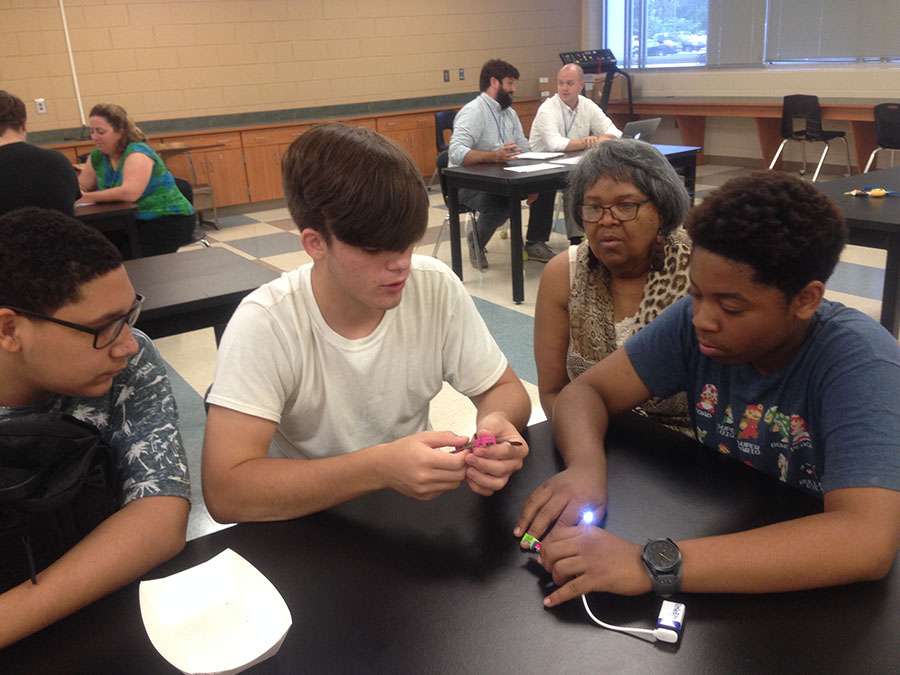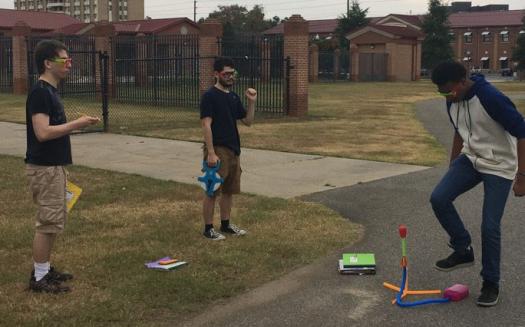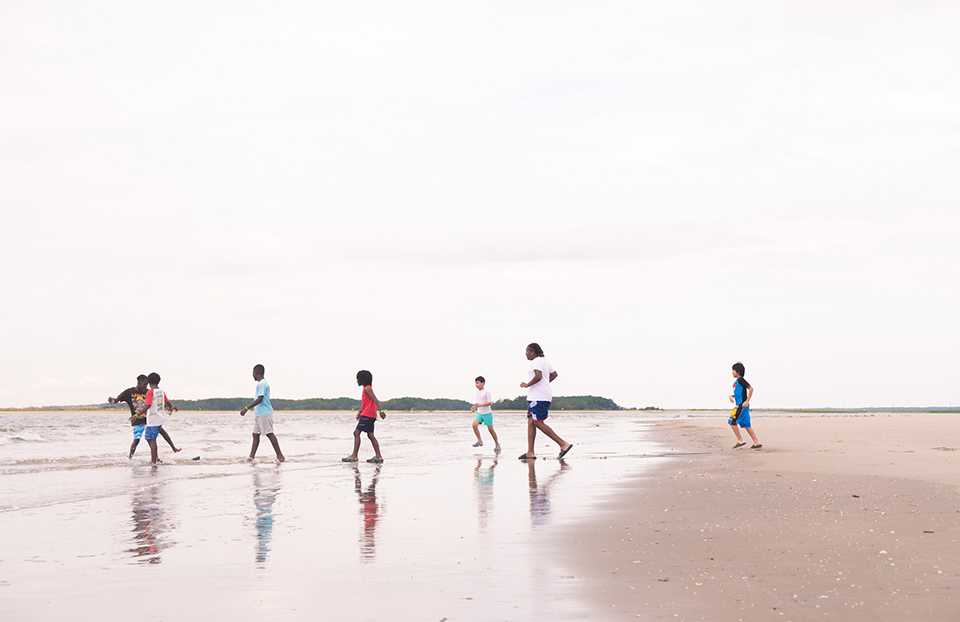‘Science is something you do’

Classes like biology and chemistry are important, but “science is something you do,” said Judy Ward, a science teacher and STEM coordinator in the Richmond County School System in Augusta, Ga. Judy knows that conducting research at the bench and being involved in the discovery process can change a student’s perspective and sustain a life-long interest in science.
Over the past two years, teachers from Judy’s school district have attended the Society for Science & the Public’s Research Teachers Conference, sponsored by Regeneron, which brings together teachers from across the country to learn best practices for teaching scientific research at their schools.
Inspired by the Society for Science & the Public and eager to teach students the scientific research process, Judy and other science teachers in her school district successfully created laboratory environments for their students, allowing them to collaborate and learn about science through real experiments.
“Before, nobody in our school system taught scientific research. It’s a side business in most classes. This year, every one of our middle school students has to take a research class,” Judy said. “We are excited to have the students do real research.”
We are excited to have the students do real research.
In traditional science classes, time constraints and a focus on standardized testing can make it difficult for teachers to devote additional time to students on how to conduct research in the lab. With the help of Caitlin Sullivan, Director of Outreach and Equity at the Society for Science & the Public, Judy and the other science teachers have developed an exciting curriculum full of hands-on scientific research activities.

“As we teach the content, we really want to have the time for the kids to go explore. But unfortunately, we have standards we have to reach,” Judy said. “The science research class gives more time for the kids to think and expand upon what they learned.”
In addition to taking traditional science classes, students are now required to take corresponding research courses. Incorporating lessons learned at the Research Teacher’s Conference, Judy and her colleagues hope to equip their students to become well-rounded scientists and engineers.
“Students conducting the research realize, ‘Oh, this is science!’ They might have learned the lessons in biology, but they didn’t really understand. In the research class, they are now understanding and reaching out and asking questions,” Judy said.
Recently, students conducted research on how different noises in the water impact fish populations, an experiment designed to broaden their understanding of physics, earth science and biology. Students are taking what they learn in class and applying it in a hands-on setting. Instead of simply memorizing information, students understand through doing.
The science research class gives more time for the kids to think and expand upon what they learned.
Judy and other teachers in the district are also encouraging students to participate in science fairs. For other teachers who want to incorporate scientific research into their classes, Judy encourages them to go for it.
“Don’t be afraid to try it. The rewards have been great so far, and it really drives home what science is about,” she said.


